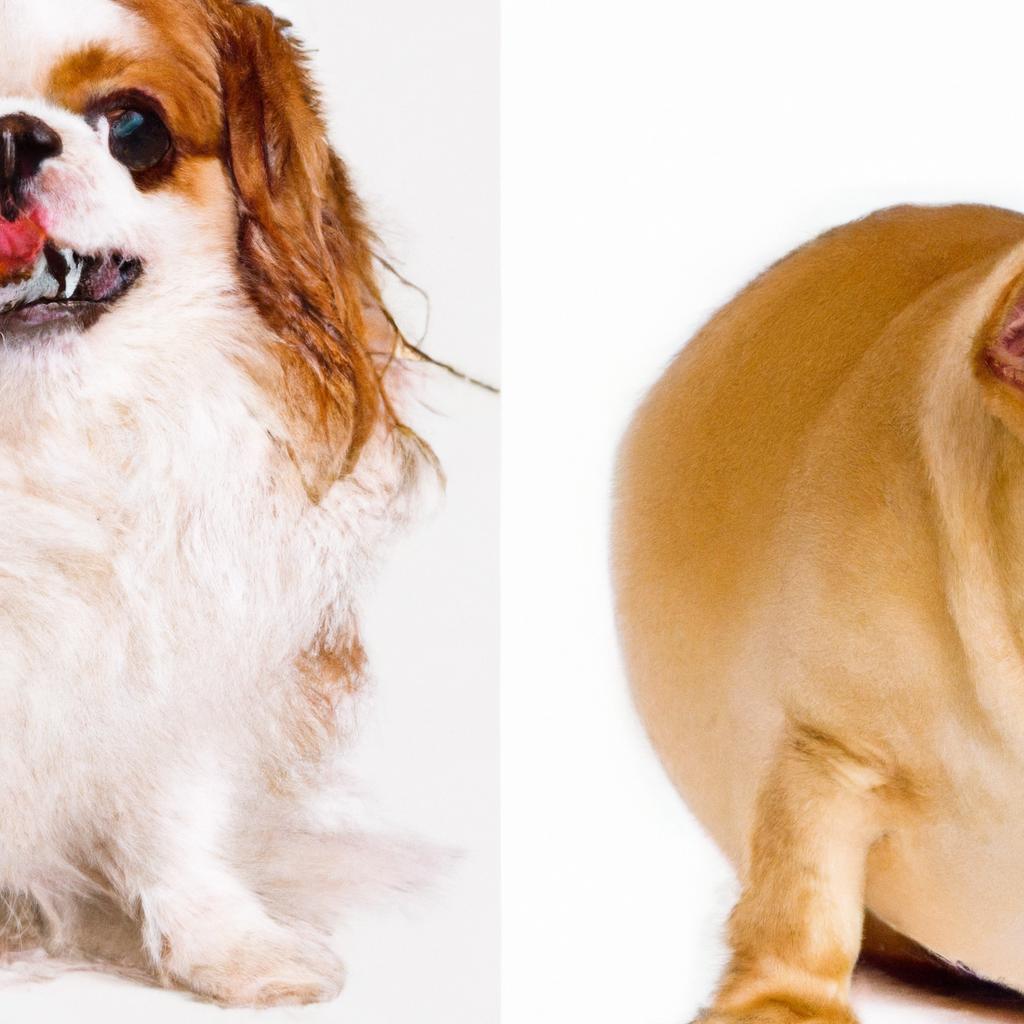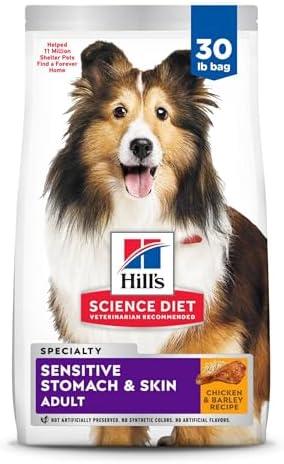Imagine a worried dog owner, Sarah, who recently learned her furry friend, Max, has a sensitive stomach. In a bid to soothe his digestive woes, she turns to a simple diet of chicken and rice. At first, Max thrives, his energy returning and his coat shining. However, weeks pass, and Sarah notices he’s become lethargic and disinterested in play. The truth dawns: while chicken and rice can be a temporary fix, it lacks essential nutrients for long-term health. To ensure Max’s vitality, a balanced diet is crucial. Don’t let your dog miss out on the nutrition they deserve!
Contents
- Understanding the Nutritional Needs of Your Dog
- The Benefits and Limitations of a Chicken and Rice Diet
- How to Properly Prepare Chicken and Rice for Your Dog
- When to Consult a Veterinarian About Your Dogs Diet
- Q&A
Understanding the Nutritional Needs of Your Dog
When considering your dog’s diet, it’s essential to recognize that their nutritional needs are complex and varied. While chicken and rice can serve as a temporary solution for certain digestive issues, relying solely on this combination for an extended period can lead to nutritional deficiencies. Dogs require a balanced diet that includes a variety of nutrients to support their overall health and well-being.
A well-rounded canine diet should include:
- Proteins: Essential for muscle development and repair.
- Fats: Important for energy and healthy skin and coat.
- Carbohydrates: Provide energy and aid in digestion.
- Vitamins and Minerals: Crucial for immune function and overall health.
Chicken and rice may lack several vital nutrients that your dog needs. For instance, they do not provide adequate amounts of essential fatty acids, certain vitamins, and minerals like calcium and phosphorus. Over time, a diet limited to just these two ingredients can lead to serious health issues, including weakened bones, poor coat condition, and compromised immune function. It’s crucial to ensure that your dog’s diet is diverse and nutritionally complete.
If you are considering a homemade diet for your dog, it’s advisable to consult with a veterinarian or a pet nutritionist. They can help you formulate a balanced meal plan that meets all of your dog’s nutritional requirements. Incorporating a variety of proteins, vegetables, and grains will not only keep mealtime interesting for your furry friend but also promote optimal health and longevity.
The Benefits and Limitations of a Chicken and Rice Diet
Feeding your dog a diet primarily consisting of chicken and rice can offer several advantages. First and foremost, this combination is often recommended by veterinarians as a temporary solution for dogs experiencing digestive issues. The bland nature of both chicken and rice makes them easy on the stomach, helping to soothe gastrointestinal distress. Additionally, chicken is a high-quality protein source, which is essential for muscle maintenance and overall health, while rice provides a good source of carbohydrates for energy.
Another benefit of this diet is its simplicity. Preparing chicken and rice is straightforward, making it an accessible option for pet owners. This ease of preparation can be particularly appealing for those who may not have the time or resources to create more complex meals. Moreover, the limited ingredient list reduces the risk of food allergies or sensitivities, allowing you to monitor your dog’s reactions to their food more effectively.
However, relying solely on chicken and rice for an extended period can lead to nutritional deficiencies. While this diet provides essential proteins and carbohydrates, it lacks vital nutrients such as vitamins, minerals, and fatty acids that are crucial for your dog’s overall health. Over time, a lack of variety in their diet can result in health issues, including skin problems, poor coat condition, and weakened immune function. Therefore, it’s important to consider this limitation when deciding on a long-term feeding strategy.
while a chicken and rice diet can be beneficial for short-term use, particularly during recovery from illness, it should not be considered a complete and balanced long-term solution. To ensure your dog receives all the necessary nutrients, it’s advisable to gradually reintroduce a variety of foods or consult with a veterinarian for a more comprehensive dietary plan. This approach will help maintain your dog’s health and well-being while still addressing any immediate dietary concerns.
How to Properly Prepare Chicken and Rice for Your Dog
When preparing chicken and rice for your dog, it’s essential to choose the right ingredients to ensure a nutritious meal. Start with **boneless, skinless chicken breast** as it is lean and easy for dogs to digest. Avoid using any seasoning, oils, or sauces, as these can be harmful to your pet. For the rice, opt for **white rice** rather than brown rice, as it is gentler on the stomach and provides a quick source of energy. Always make sure to cook both the chicken and rice thoroughly to eliminate any harmful bacteria.
Once you have your ingredients ready, the cooking process is straightforward. Begin by boiling the chicken in water until it is fully cooked, which usually takes about 20-30 minutes. After cooking, shred the chicken into small, manageable pieces. In a separate pot, cook the rice according to the package instructions. Once both components are prepared, mix them together in a bowl, ensuring that the ratio is approximately **two parts rice to one part chicken**. This balance provides a well-rounded meal that is easy on your dog’s digestive system.
It’s important to let the mixture cool before serving it to your dog. Hot food can burn their mouth and lead to discomfort. Once cooled, you can serve the chicken and rice in your dog’s bowl. Monitor your dog’s reaction to the new meal, especially if it’s their first time trying it. Look for any signs of allergies or digestive issues, such as vomiting or diarrhea. If your dog enjoys the meal and shows no adverse reactions, you can incorporate it into their diet as a temporary solution for digestive upset or as a regular treat.
While chicken and rice can be a beneficial meal for your dog, it should not be the sole component of their diet for an extended period. This combination lacks essential nutrients that dogs need for overall health. To ensure a balanced diet, consider adding **vegetables** like carrots or peas, and consult with your veterinarian about incorporating a high-quality dog food that meets all nutritional requirements. By preparing chicken and rice properly, you can provide a comforting meal that supports your dog’s health while also satisfying their taste buds.
When to Consult a Veterinarian About Your Dogs Diet
While chicken and rice can be a suitable short-term diet for dogs recovering from gastrointestinal issues, it’s crucial to monitor your pet’s overall health and nutritional needs. If you notice any signs of distress or changes in behavior, it’s time to seek professional advice. **Symptoms such as vomiting, diarrhea, lethargy, or loss of appetite** can indicate that your dog’s diet is not meeting their needs or that they may have underlying health issues that require attention.
Long-term feeding of a chicken and rice diet without veterinary guidance can lead to nutritional deficiencies. Dogs require a balanced diet that includes a variety of nutrients, and relying solely on chicken and rice may not provide everything they need. If your dog shows signs of **weight loss, poor coat condition, or decreased energy levels**, it’s essential to consult a veterinarian to evaluate their diet and overall health.
Additionally, if your dog has specific health conditions, such as allergies, diabetes, or kidney disease, their dietary requirements may differ significantly from those of a healthy dog. In such cases, a veterinarian can help tailor a diet that meets your dog’s unique needs. **Consulting a vet is particularly important if you notice:**
- Changes in drinking habits
- Excessive scratching or skin irritations
- Frequent ear infections
- Behavioral changes, such as increased aggression or anxiety
Lastly, if you’re considering transitioning your dog to a homemade diet or have questions about the adequacy of their current food, a veterinarian can provide valuable insights. They can recommend appropriate supplements or alternative food options that ensure your dog receives a well-rounded diet. Remember, your dog’s health is paramount, and professional guidance can help you make informed decisions about their nutrition.
Q&A
-
Is chicken and rice a complete diet for dogs?
No, chicken and rice alone do not provide a complete and balanced diet for dogs. While they are easily digestible and can be beneficial for dogs with digestive issues, they lack essential nutrients such as vitamins, minerals, and fatty acids that are crucial for your dog’s overall health.
-
Can I feed my dog chicken and rice long-term?
Feeding your dog chicken and rice long-term is not recommended. A prolonged diet of just chicken and rice can lead to nutritional deficiencies and health problems. It’s important to incorporate a variety of foods to ensure your dog receives all necessary nutrients.
-
When is it appropriate to feed my dog chicken and rice?
Chicken and rice are often recommended for dogs recovering from gastrointestinal upset, such as vomiting or diarrhea. This bland diet can help soothe their stomach and provide easily digestible nutrition. However, it should only be a temporary solution.
-
How can I transition my dog back to their regular diet after chicken and rice?
To transition your dog back to their regular diet, gradually mix in their usual food with the chicken and rice over several days. Start with a small amount of their regular food and slowly increase it while decreasing the chicken and rice. This helps prevent digestive upset and ensures a smooth transition.
while chicken and rice can be a temporary solution for your dog’s dietary needs, it’s essential to provide a balanced diet for long-term health. Consult your veterinarian to ensure your furry friend receives all the nutrients they need to thrive.

大家好,我是彼得潘,專業的手法身體治療師。我喜歡探索和研究各種主題,並透過與人工智慧的合作分享專業、實用、有趣的文章。我們定期進行人工審核,以確保內容的準確性。如果您發現文章中有任何不準確的地方,請隨時與我們聯繫,我們會及時糾正。您可以透過 [email protected] 與我們聯繫。



